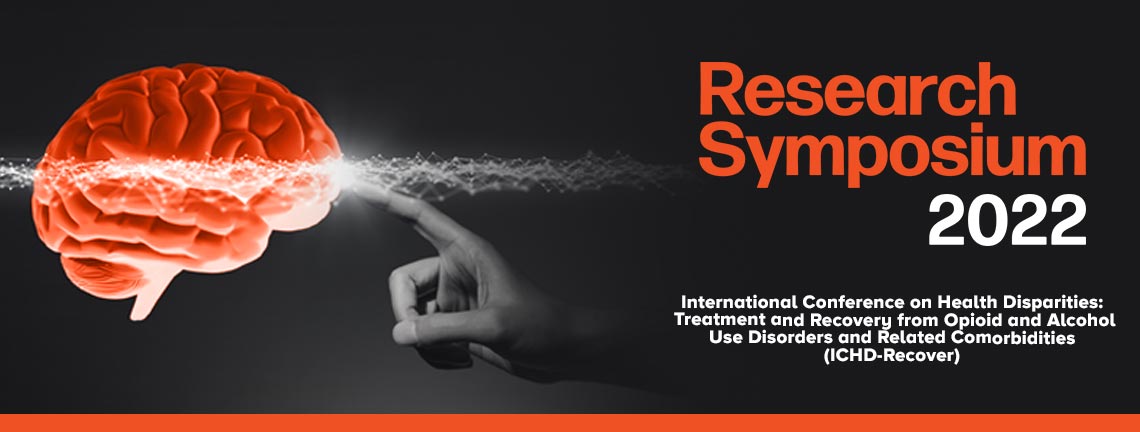
Talks
Presentation Type
Oral Presentation
Discipline Track
Biomedical Science
Abstract Type
Program Abstract
Abstract
Background: The COVID-19 pandemic emerged in December 2019 by a novel strain of SARS-CoV-2 (Severe Acute Respiratory Syndrome Coronavirus 2) has led to new endeavours in repurposing of existing drugs, anti-COVID-19 vaccine and drug development. Natural products, due to their general safety and wider availability, have attracted research and public attention. In this study, we report anti-COVID potential of compounds from honeybee propolis and Ayurvedic herb, Ashwagandha. Effect of active ingredients was studied on human cell surface receptors (ACE-2:Angiotensin Converting Enzyme-2/Spike protein and TMPRSS2:Transmembrane Protease Serine 2), critical for virus infection and virus main protease (Mpro, essential for virus replication), through molecular simulations and in vitro experiments.
Methods: Structure-based computational analyses were performed to predict the effect of honeybee propolis (CAPE: Caffeic Acid Phenethyl Ester and ARC: Artepillin C), and Ashwagandha (Withanolides) ingredients on virus-host cell surface receptors. Cell-based assays were used to investigate the effect of these compounds on the expression level of the target proteins and virus replication.
Results: Ashwagandha-derived nine withanolides were tested in silico for their potential to target and inhibit (i) ACE-2 and TMPRSS2 receptors (ii) viral main protease Mpro. We found that most withanolides possess capacity to bind to ACE-2, TMPRSS2 and Mpro . On the other hand, CAPE and ARC showed stable interactions at the active site of ACE2 and Mpro . ARC, but not CAPE, showed stable interaction with TMPRSS2. Human cells treated with withanolides, CAPE or ARC showed downregulation of both the receptors. Furthermore, celland PCR-based SARS-CoV-2 replication assays endorsed their antiviral activity.
Conclusion: The findings suggest that the Ashwagandha-withanolides and honeybee propolis-derived compounds, CAPE, and ARC, could be helpful in the reduction of viral replication/infection, and hence warrant further experimental and clinical attention.
Academic/Professional Position
Faculty
Recommended Citation
Wadhwa, Renu; Sundar, Durai; Ishida, Yoshiyuki; Terao, Keiji; and Kaul, Sunil C., "Cell-based experimental evidence to the anti-COVID-19 potential of Ashwagandha and honeybee propolis ingredients" (2023). Research Symposium. 10.
https://scholarworks.utrgv.edu/somrs/2022/talks/10
Included in
Bioinformatics Commons, Integrative Biology Commons, Medicinal Chemistry and Pharmaceutics Commons, Respiratory Tract Diseases Commons, Translational Medical Research Commons, Virus Diseases Commons
Cell-based experimental evidence to the anti-COVID-19 potential of Ashwagandha and honeybee propolis ingredients
Background: The COVID-19 pandemic emerged in December 2019 by a novel strain of SARS-CoV-2 (Severe Acute Respiratory Syndrome Coronavirus 2) has led to new endeavours in repurposing of existing drugs, anti-COVID-19 vaccine and drug development. Natural products, due to their general safety and wider availability, have attracted research and public attention. In this study, we report anti-COVID potential of compounds from honeybee propolis and Ayurvedic herb, Ashwagandha. Effect of active ingredients was studied on human cell surface receptors (ACE-2:Angiotensin Converting Enzyme-2/Spike protein and TMPRSS2:Transmembrane Protease Serine 2), critical for virus infection and virus main protease (Mpro, essential for virus replication), through molecular simulations and in vitro experiments.
Methods: Structure-based computational analyses were performed to predict the effect of honeybee propolis (CAPE: Caffeic Acid Phenethyl Ester and ARC: Artepillin C), and Ashwagandha (Withanolides) ingredients on virus-host cell surface receptors. Cell-based assays were used to investigate the effect of these compounds on the expression level of the target proteins and virus replication.
Results: Ashwagandha-derived nine withanolides were tested in silico for their potential to target and inhibit (i) ACE-2 and TMPRSS2 receptors (ii) viral main protease Mpro. We found that most withanolides possess capacity to bind to ACE-2, TMPRSS2 and Mpro . On the other hand, CAPE and ARC showed stable interactions at the active site of ACE2 and Mpro . ARC, but not CAPE, showed stable interaction with TMPRSS2. Human cells treated with withanolides, CAPE or ARC showed downregulation of both the receptors. Furthermore, celland PCR-based SARS-CoV-2 replication assays endorsed their antiviral activity.
Conclusion: The findings suggest that the Ashwagandha-withanolides and honeybee propolis-derived compounds, CAPE, and ARC, could be helpful in the reduction of viral replication/infection, and hence warrant further experimental and clinical attention.

